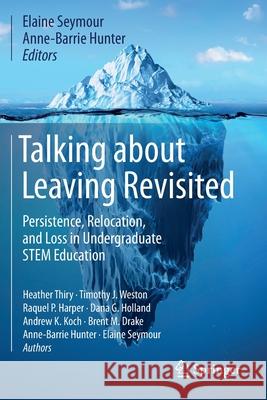Talking about Leaving Revisited: Persistence, Relocation, and Loss in Undergraduate Stem Education » książka
topmenu
Talking about Leaving Revisited: Persistence, Relocation, and Loss in Undergraduate Stem Education
ISBN-13: 9783030253066 / Angielski / Miękka / 2020 / 528 str.
Talking about Leaving Revisited: Persistence, Relocation, and Loss in Undergraduate Stem Education
ISBN-13: 9783030253066 / Angielski / Miękka / 2020 / 528 str.
cena 685,93
(netto: 653,27 VAT: 5%)
Najniższa cena z 30 dni: 385,52
(netto: 653,27 VAT: 5%)
Najniższa cena z 30 dni: 385,52
Termin realizacji zamówienia:
ok. 16-18 dni roboczych.
ok. 16-18 dni roboczych.
Darmowa dostawa!
Kategorie:
Kategorie BISAC:
Wydawca:
Springer
Język:
Angielski
ISBN-13:
9783030253066
Rok wydania:
2020
Wydanie:
2019
Ilość stron:
528
Waga:
0.76 kg
Wymiary:
23.39 x 15.6 x 2.84
Oprawa:
Miękka
Wolumenów:
01
Dodatkowe informacje:
Wydanie ilustrowane











